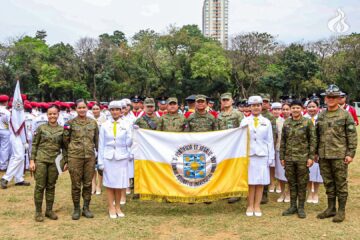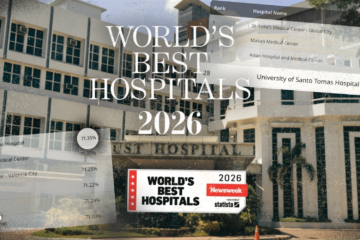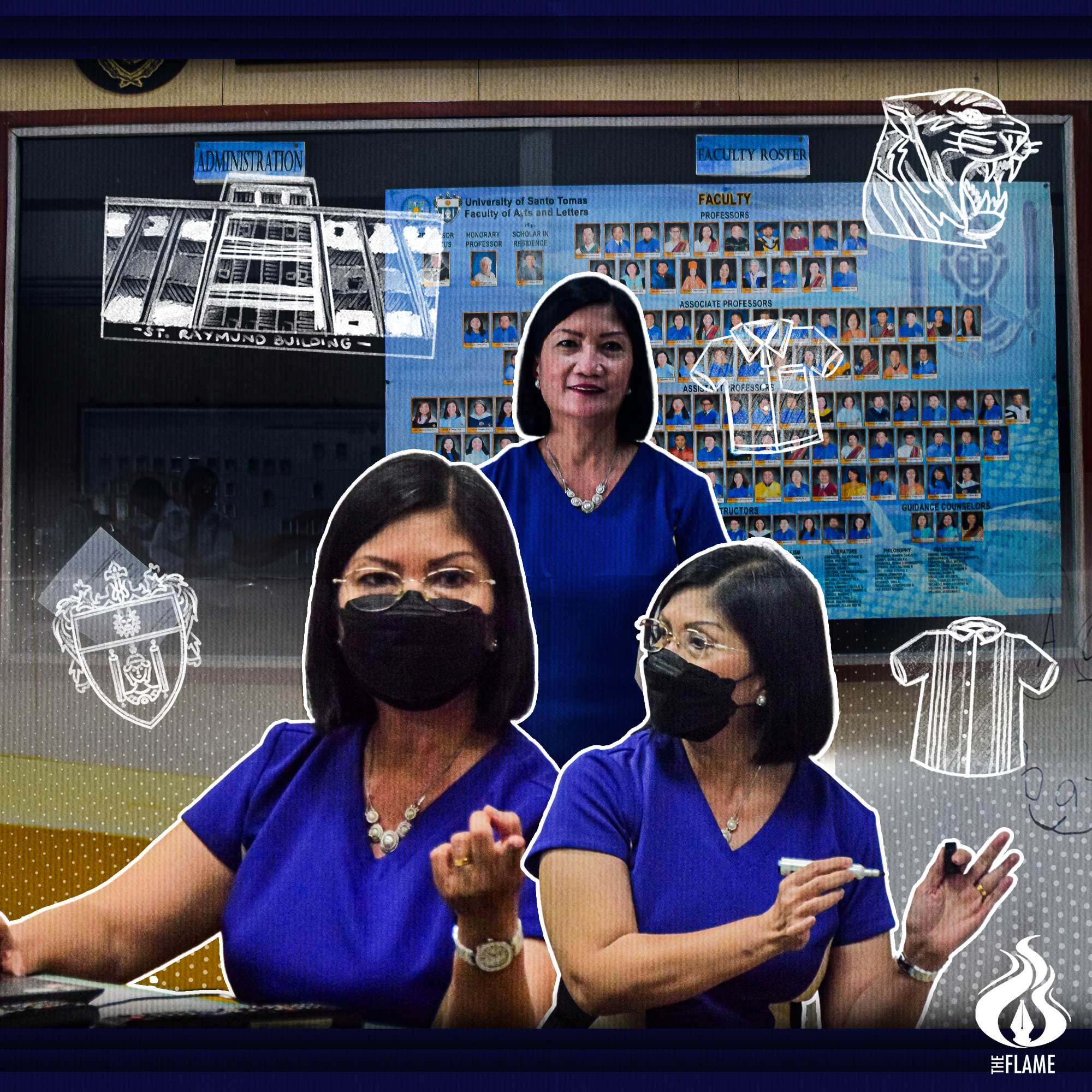
INSIDE THE four walls of room 101, Prof. Marilu Madrunio stood in front of the fresh batch of English Language Studies (ELS) students, smiling as she announced next week’s class reminders.
Serving now as a full-time professor, the former dean of the Faculty of Arts and Letters (AB) left her freshmen class with such energy and proceeded to a meeting.
Madrunio, whose term ended last December, is known for her accomplishments in pioneering forensic linguistics research in the Philippines. But because of recent developments, many will remember her better as the dean that led the AB during a time of uncertainty and a leader who oversaw the Artlet community’s transition to a new learning mode.
“Of course, I learned a lot and prayed a lot,” the former AB dean said of her experience.
Leadership during the pandemic
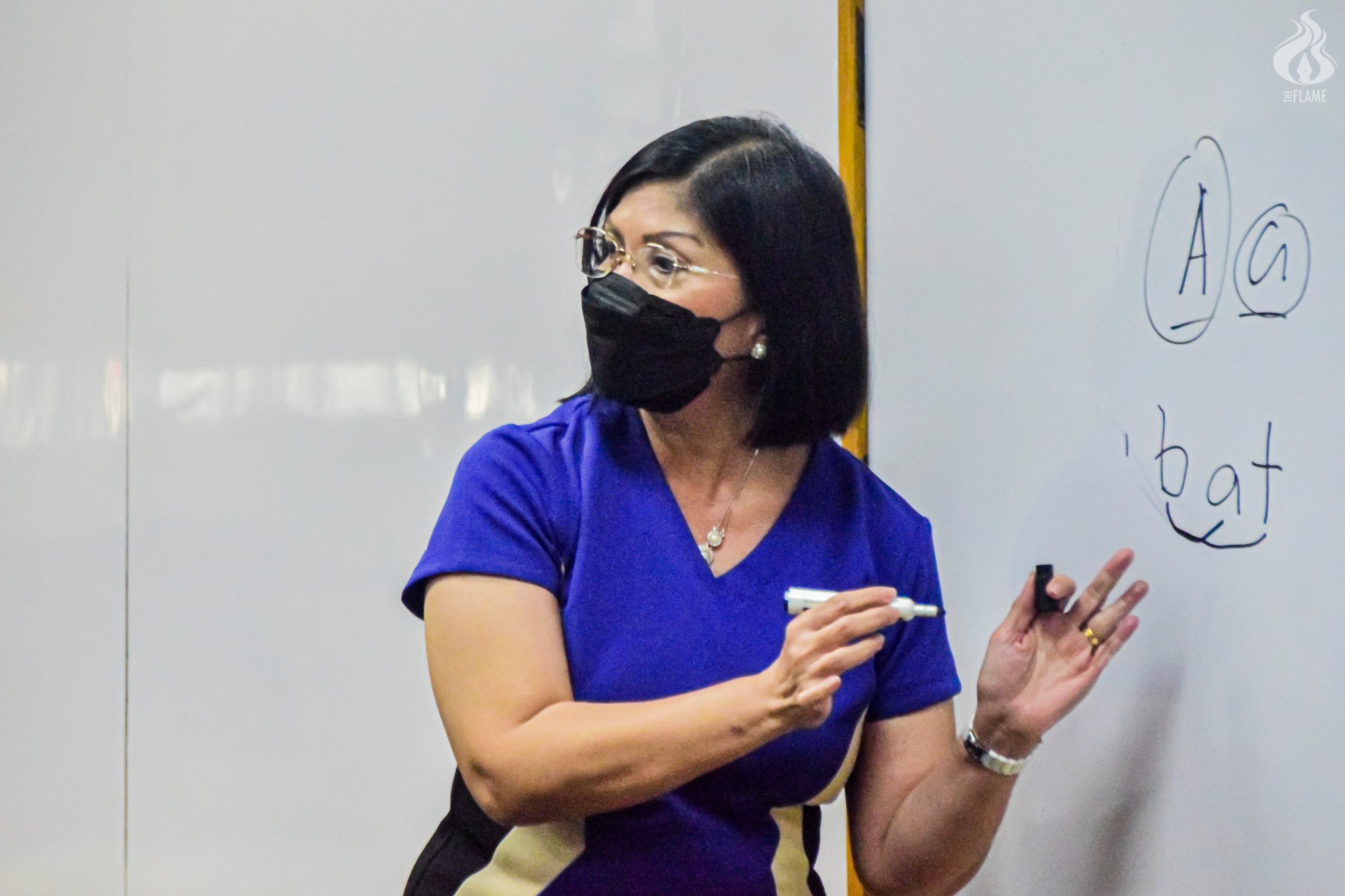
Just a year after her appointment as AB dean, Mardunio had to confront the effects of a health crisis that struck the University and the nation’s education sector.
For Madrunio, the sudden shift to virtual mode of instruction was “the most challenging.”
“It was really very difficult considering that we all had to undergo a lot of training. It was non-stop. Until now, trainings are being conducted through CITED (Center for Innovative Teaching and Educational Delivery) and other offices,” she added.
“We did not have to restructure our organization just to get by. What we did was simply to adjust our work schedules and approaches based on the needs of the times,” Madrunio said.
“This means that we worked longer hours mostly due to the remote meetings and classes and conducted teachings virtually,” she added.
Madrunio said the “spirit of teamwork, collegiality, and inclusiveness” allowed the AB to overcome the pandemic-induced challenges.
Madrunio’s leadership during the peak of the pandemic was praised by Interdisciplinary Studies chair Asst. Prof John Manuel Kliatchko, who described her three-year term as a “collaborative experience” bonded by teamwork in all aspects of their job.
“Everything felt like it’s a whole team at work, particularly with all those accreditations, audits, committee work, overall, one feels being part of a productive team,” Kliatchko said.
AB Student Council (ABSC) president Kim Dacanay said Madrunio was receptive to collaborative dialogues and recommendations particularly on pro-student policies that seek to improve the student experience during the pandemic.
“Despite her busy schedule, Dean Madrunio always promptly accommodated the council’s inquiries and concerns. Many programs and projects for the Artlets student body have been successful because of the AB administration’s active participation,” Dacanay said.
AB Regent Rev. Fr. George Phe Mang, O.P. said Madrunio had demonstrated collaborative leadership in times of difficulty, citing her goal to make sure that no one in the AB community would be left behind.
“She would always seek the comments, suggestions, and opinions of everyone every time there are important decisions to make. She also makes sure that there is a meeting of the minds when there are issues to resolve,” the AB regent said.
While colleagues laud her for her work attitude, Madrunio is not taking all the credit for the faculty’s gains.
“Every one really worked very hard. All our accomplishments would not have been possible if there was no cooperation and collaboration,” she said.
Keeping the Artlet excellence at work
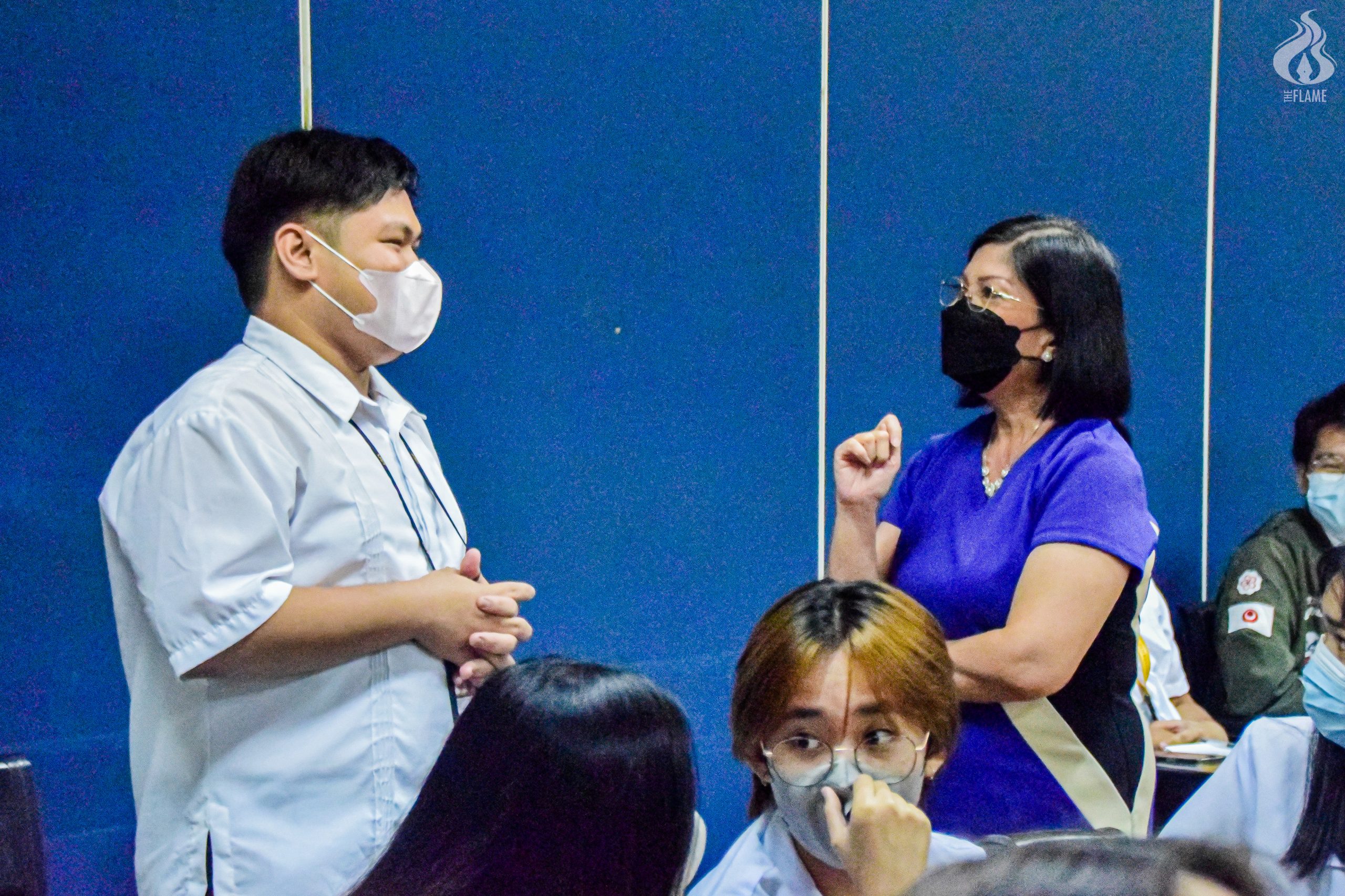
Madrunio, who described the AB as a “mega-college,” also had to handle the voluminous requests, feedback and remarks from the 3,500 Artlet students and 285 academic staff during the onset of the pandemic.
“It was a daunting task for all of us as we were all caught unaware of this emergency shift to online instruction,” Madrunio said.
Dacanay said Madrunio‘s value for excellence is reflected by the high standards she upholds for herself, the faculty, students, and her staff.
“Everyone who worked with Dean Madrunio knows that she was passionate about nurturing the Faculty of Arts and Letters,” the ABSC president said.
Kliatchko cited the former dean’s “unquestionable expertise in academic leadership” but the finer details of her administration were the ones that showcased her high regard for excellence.
“She wants AB to be recognized for her excellence as an academic unit and she knows where to secure these points. Public presence, internationalization efforts, research, community involvement—she kept reminding us of these,” Kliatchko said.
Madrunio‘s major plans for students and the faculty were all accomplished in her three-year term as dean. Most notable are the ASEAN University Network – Quality Assessment Programme Assessment approval for journalism and communication, the successes of eight AB programs in the accreditation process of the Philippine Association of Colleges and Universities and international university partnerships. Curriculum revisions that involve integrating service learning, new assessment tasks, and compliance with CITED requirements, establishment of the Research Ethics Committee, institutionalization of the research colloquium, and new partnerships with international agencies and institutions were also achieved during her term.
The next chapter

Since she has given the keys of AB’s leadership to new Artlet dean Jacqueline Lopez-Kaw, Madrunio has more time to pursue her goals in the field of forensic linguistics (FL). The former dean is part of the International Association for Forensic and Legal Linguistics.
“Spreading the word about FL takes a lifetime and now that I am no longer dean, I would be able to fast-track my plans for FL in the Philippines,” she told The Flame.
“The international community is very supportive of my undertakings and I am too fortunate to have them guide me and my colleagues in the department as regards this field of specialization.”
Madrunio and Isabel Pefianco Martin of Ateneo de Manila University recently came out with a publication titled “Forensic Linguistics in the Philippines: Origins, Developments, and Directions,” under the Cambridge University Press.
According to Cambridge’s website, the book offers a critical review of forensic linguistic studies in the Philippines and features studies that reveal relevant themes from texts in courtroom proceedings, legal writings, and police investigations and delve into issues of language choice and policy.
“I am likewise very happy that I have put the Philippines on the global map of Forensic Linguistics,” she said.
Describing Madrunio as a “woman of faith in action and a visionary leader,” Phe Mang said the former AB dean’s accomplishments and contributions are remarkable not only to the faculty but also to the entire University.
Looking back to her three years of leading the oldest liberal arts college in the Philippines, Madrunio claimed everything went according to her plan.
“I am proud to say that prior to the pandemic, whatever I planned for my term as dean, were all accomplished.” F – Katherine Chan, Trisha Tamio, Shayne Lee Macaraeg and Prince Ronson Sabado


